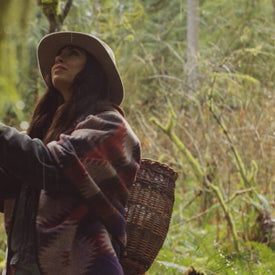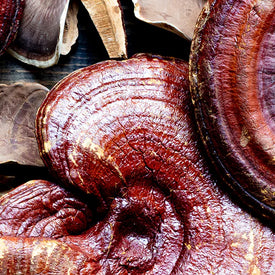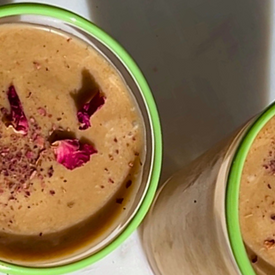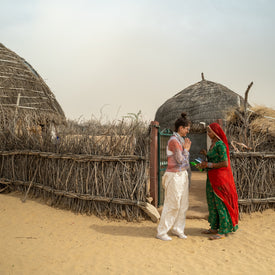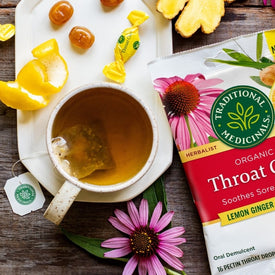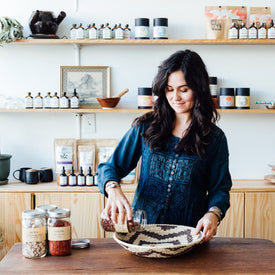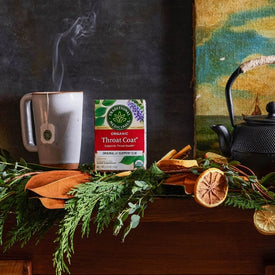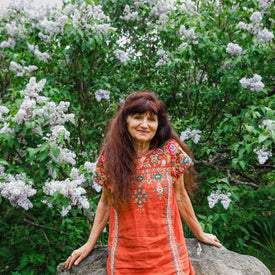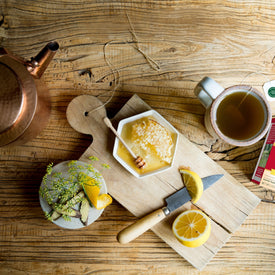There’s something telling about the adages, “the nose knows,” and “it’s a matter of taste.” Of all the senses of the human body, smell and taste are arguably our most powerful. Able to trigger deeply embedded memories and caution us against danger, they are also our quickest to process, allowing us to trust our first instincts when we would ordinarily second-guess ourselves.
Both taste and smell tend to elicit strong emotional reactions. Have you ever taken a whiff of something that smelled rotten? Chances are your sense of smell was trying to tell you something. If you had a bad experience with a food as a child, chances are you still resist eating it in your adult life. But our senses of taste and smell aren’t isolated; rather, they are two senses that work in tandem with the brain to quickly sharpen our perceptions and help us choose the right things for our body to ingest.
While our Quality Control (QC) team employs scientific testing methods like microscopic and thin-layer chromatography to identify and qualify our herbs, organoleptic, or sensory tasting, is generally our first gate for an herb to pass. In the herb world, few noses and palates are more sharply tuned than that of Traditional Medicinals’ Blend Master, Sandy Zackaray—the ultimate gatekeeper. Since 1980, Sandy has been the eyes, the touch, the taste, and the nose of our QC Team; she has an intimate understanding of our herbs that dates back decades. She and her team of associates meet daily to evaluate the quality of our herbs.

“The Nose Knows”
Sandy and her team start their sensory evaluations by smelling the herbs first. She explains, “We can just smell them and know what they are and if they’re fresh. The nose is more complicated than our taste buds—there are so many things it can perceive; the palate is more limited.” Smell is our most primal sense and is the one most associated with memory, which may explain how Sandy and her team are able to recall the aromas associated with specific herbs.
For that, we have anatomy and physiology thank. Our olfactory receptors lie along the roof of the nasal cavity, with at least 400 different types of receptors that allow us to identify countless different smells throughout our lifetimes. These receptors are covered in tiny hairs, called cilia, as well as a protective layer of mucus to help us absorb aromas. When a nose begins to smell, the cilia send a nerve impulse directly to the cerebral cortex in the brain. Once in the brain, the olfactory bulb processes the smell. Since it is connected to the limbic system—the part of the brain associated with emotion and memory—the olfactory bulb then triggers an emotion associated with the scent, helping us identify and recall.
“It’s All About Taste”
“Like smell,” Sandy explains, “our sense of taste is incredible—and so important. At the most basic level, we have to ask ourselves, ‘who wants to drink a chamomile tea that doesn’t taste good?’” And like the olfactory receptors in the nose help process smell, the gustatory receptors of the tongue process taste. Organized into approximately 4,000 taste buds, these receptors process the five different tastes: sweet, bitter, sour, salty, and umami. While scientists debate whether or not specific tastes are processed on different parts of the tongue, we do know that the sensory cells in the taste buds renew themselves once a week. However frequently refreshed, the taste buds won’t be as effective in detecting taste if our sense of smell is compromised. The two are intricately connected.

Taste buds can be easily overwhelmed with spicy or pungent flavors, so Sandy and her team are sure to come into their daily morning tastings with clean palates, to ensure that no other flavors interfere with their evaluations. “Taste is an important indicator of quality,” she says. “We can taste if herbs are fresh, or if they’ve been languishing in a cabinet too long. Herbs are a lot like spices that way; they’re meant to be consumed fresh.”
“Taking a Moment”
To best connect with their senses, the QC team creates a ritual during daily tastings. On this particular day, a Monday morning, the sun is shining into the laboratory, and the team has assembled to taste. The table is set with several cups of steeping tea, each with a reference cup beside it to compare with the newly received herbs or newly made blends.

Sandy explains, “For us, tasting tea is about taking a moment. We crack a window for fresh air, we stretch a little bit, and then we take a deep breath. Some of us will even sing or hum. You’ve gotta take a moment when you’re tasting. You want to know why? To create the quiet space so we can listen to our senses. We are so blessed to do this kind of work. We hope that translates to the final product. We have to savor the moment if we want our customers to do the same. Herbs are a gift from the earth.”


